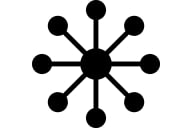You have /5 articles left.
Sign up for a free account or log in.
Discouraging professors of journalism from doing journalism themselves is like telling a music professor to give away his piano and write about people who still play one.
In the fall of 2010 I was denied funding by the journalism department at the American University in Cairo, my employer at the time, for travel to Tunisia, where I was hoping to write about the lack of journalistic attention on that despotic country. Why the rejection? I was a tenure-track faculty member with a Ph.D. and, therefore, I should have been conducting only “academic” research, not political analysis.
I disagreed, and took my case to the university provost, who saw things my way and approved the funds in a matter of minutes. This was fortunate, for by the time I visited Tunisia in November, its revolution was just a few weeks away, an uprising that changed the course of history in several countries. Reporting from Tunisia gave me unique insights I could share with my students on the origins of the new political order during the ensuing Arab spring.
Had my department at the time prevailed in its view that professionally oriented teachers of journalism should write political commentary while “academic” professors must stick to peer-reviewed projects in a pristine tower, I would have been robbed of a once-in-a-lifetime journalistic opportunity, and I would have had less context to offer my journalism students at an important moment in history.
Journalism is by no means the only field with somewhat of a professional-academic split: social science departments are sometimes divided between, say, clinical and cognitive psychologists. While it’s easy in hindsight to call out my former academic department for dismissing both me and Tunisia, this kind of binomial categorization of journalism professors as either an academic “1” or a professional “2” exists a lot more than it should. And it’s destructive.
In 2007, while pursuing a Ph.D. in journalism at the University of North Carolina, I wrote an essay on the emerging Iraqi press for The Baltimore Sun. A professor in the journalism school bumped into me in the mail room and said, “I saw your piece in The Sun. Interesting. I didn’t know you settled on doing that kind of writing” -- as though it were inconceivable for a journalism researcher to also be doing journalism. Actually, the commentary in The Sun was an outgrowth of much of my research across the Middle East, both peer-reviewed and otherwise.
While some academics and administrators are coming around to the idea that journalism professors can be both practitioners and scholars, rigid categorical thinking persists, particularly in the dual promotion systems in some journalism programs of so-called “professors of practice” and “academic tenure” tracks.
The existence of this system suggests that former journalists who teach at universities are expected to produce journalism and professors with advanced research degrees should chase peer-reviewed projects, regardless of their professional background. Just as journalism professors without advanced research degrees are usually welcomed to publish in scholarly journals, and rewarded for it, those with Ph.D.s shouldn’t be discouraged from doing journalism.
Adding to the strangeness is the fact that J-school administrators and university PR offices gleefully publicize professors who publish commentaries in The New York Times or Foreign Policy, but this work is often discounted come tenure and promotion time. The president of The American University in Cairo personally congratulated me after I wrote a piece in The Chronicle of Higher Education on journalism education in the Arab world, but never once contacted me regarding any of my peer-reviewed scholarship.
Some journalism programs do demonstrate needed flexibility in encouraging professors to cover news. The University of Maine, where I assume a post in August, valuates journalistic output for purposes of tenure and promotion. Maine’s journalism department encourages professors to publish in top-tier journals, but also appreciates an essay in The New Yorker. As many traditional tenured jobs disappear, journalism professors will likely have greater freedom to craft their creative programs to suit their own outcomes. My post at Maine isn’t structured in traditional tenure terms, and I’ve been assured that journalism I produce is welcome there.
Instead of just counting a professor’s scholarly journal articles, journalism programs should simply ask a few core questions, in addition to assessments of service to the institution: Is the professor consistently enriching students? Is the professor maturing as an innovator and generator of ideas? Is his work attracting outside recognition and funding?
I recently received a small grant from the National Constitution Center in Philadelphia in 2011 to participate in its Peter Jennings Project for Journalists & the Constitution, precisely because I’m a practicing journalist. Were I not doing journalism, the funding would likely have been unavailable to me, and I would now know a lot less about constitutional law.
“In addition to educating and training journalists,” wrote Leonard Downie and Michael Schudson in a chapter in the edited volume Will the Last Reporter Please Turn Out the Lights, “colleges and universities should be centers of professional news reporting, as they are for the practice and advancement of medicine and law.” Downie teaches at the Walter Cronkite School of Journalism at Arizona State University, which uses this clinical approach, as does the School of Journalism at the University of North Carolina, whose students publish Reesenews.org, covering both the university and the town of Chapel Hill.
“There is a growing movement among J-schools to not only teach journalism, but also to have students practice it by contributing to local websites and publications,” the FCC observed in a 2011 publication, The Information Needs of Communities. Such contributions are very important, especially as local and state reporting continues to shrink, but why not have more journalism professors join the cause, too? This would help create more news in the public interest, as well as keep journalism educators' reporting know-how sharp and current.
Writing and reporting are not like tying a sneaker. Once you learn how to do it and how to teach younger folks to do it, you don’t have fully relevant skills forever.









